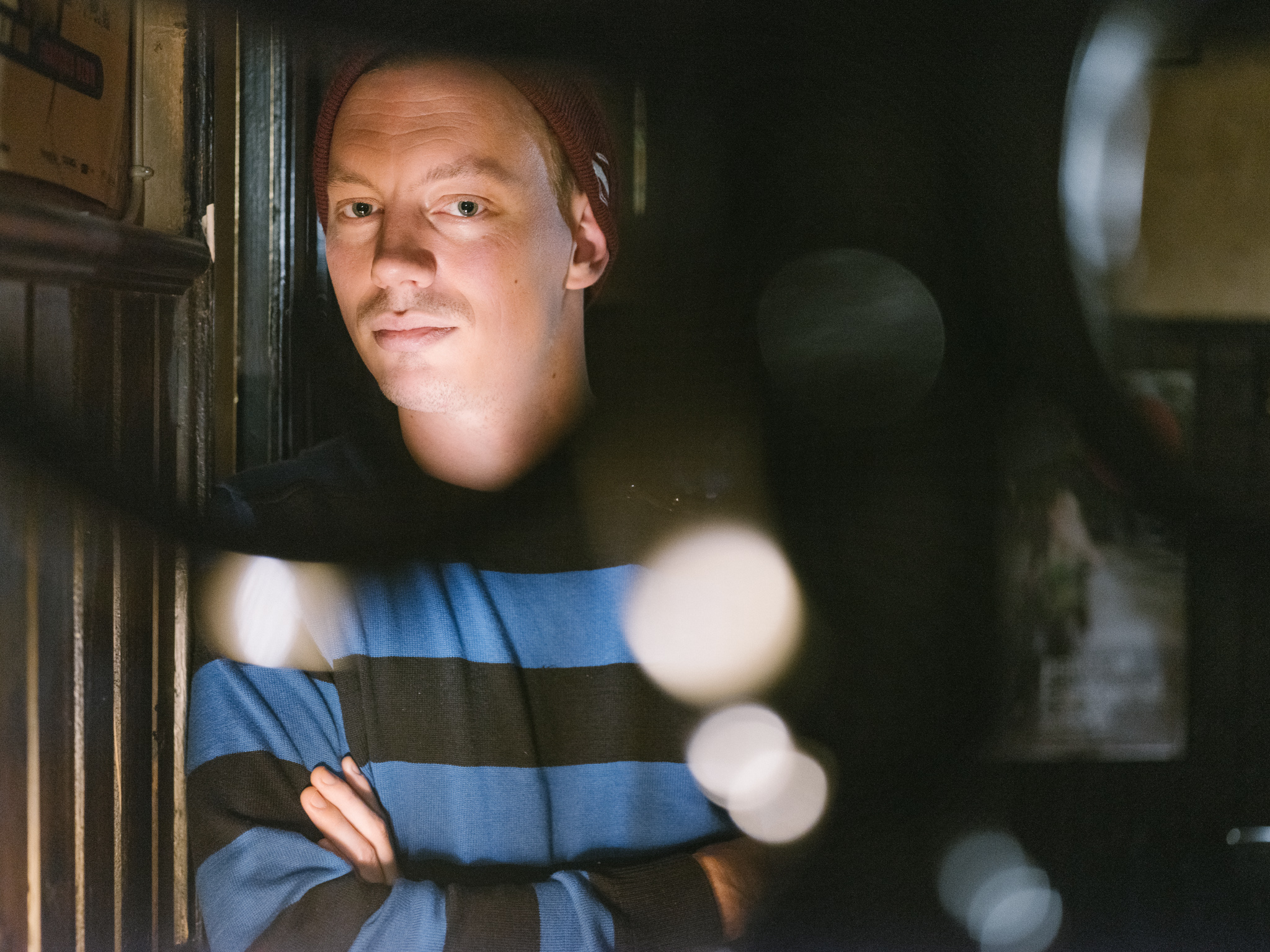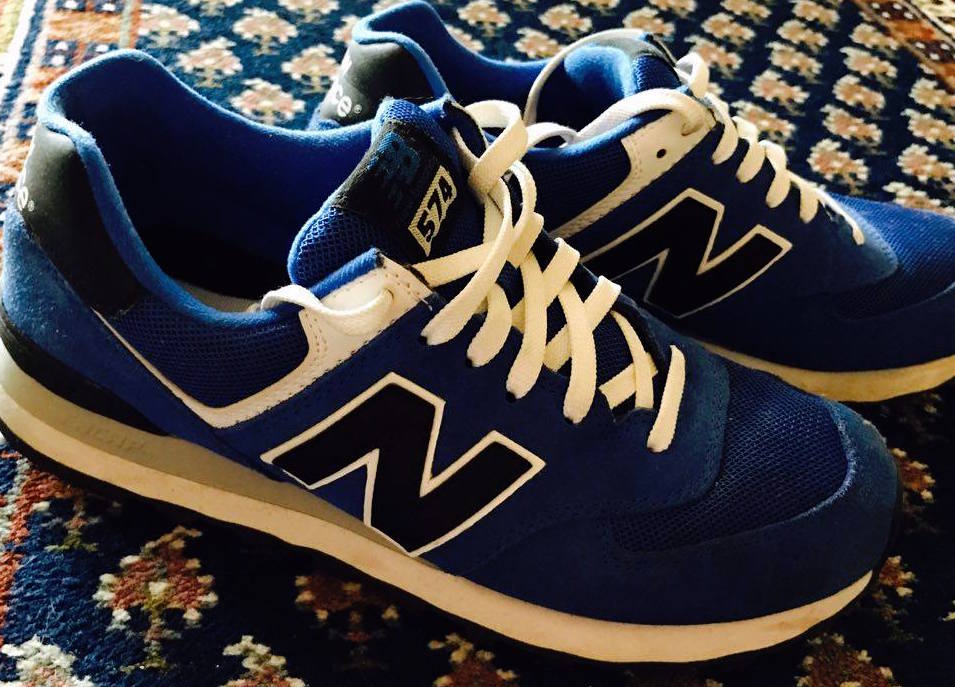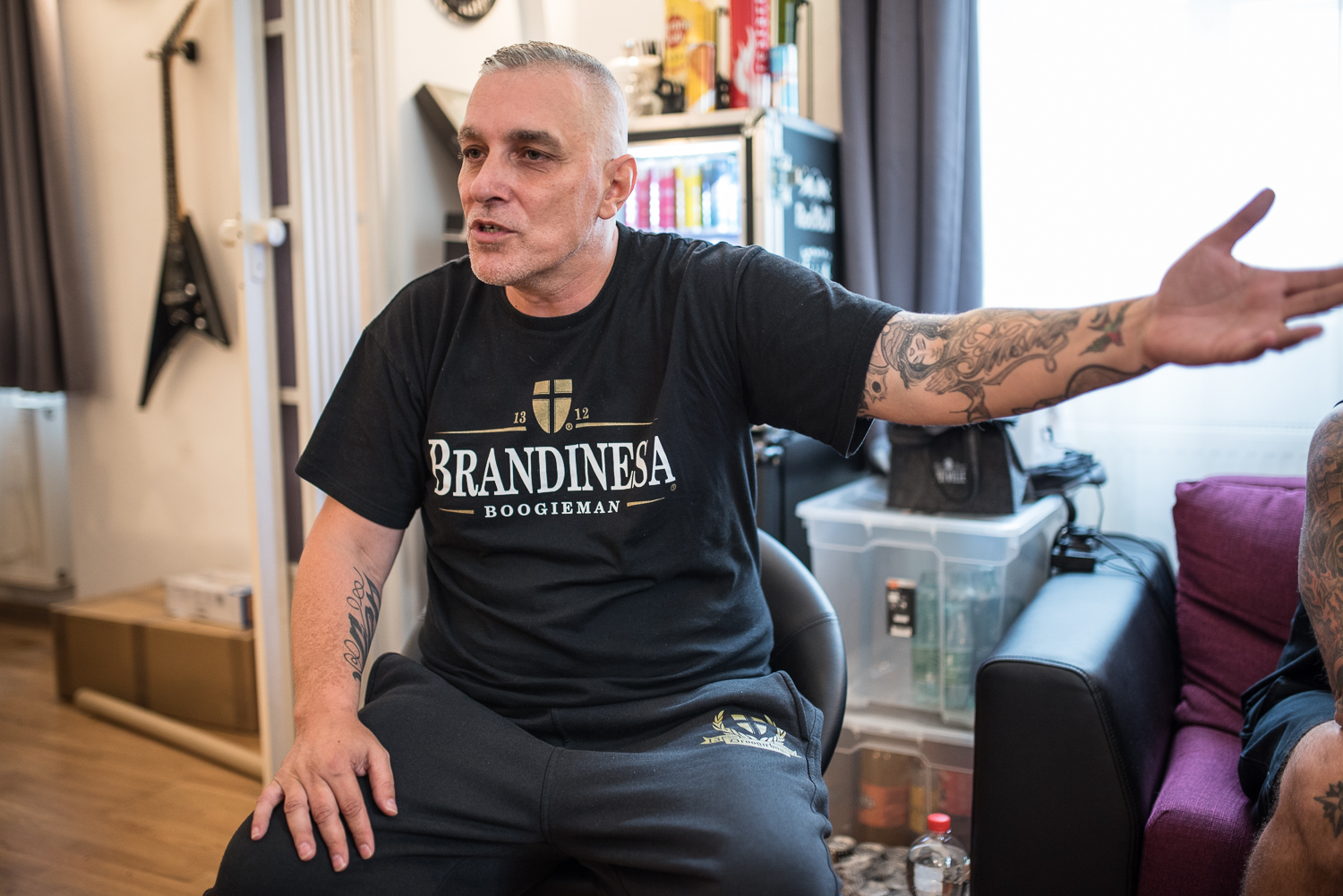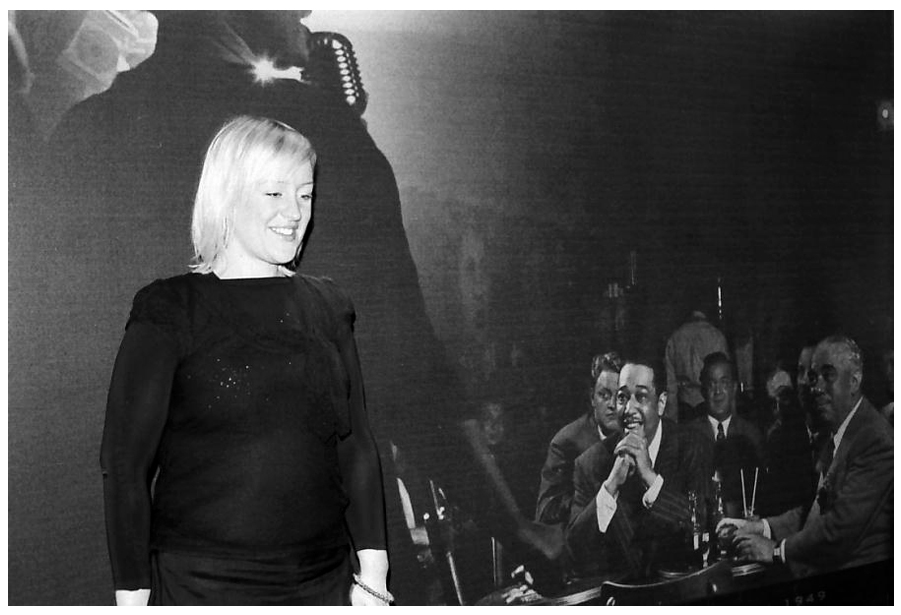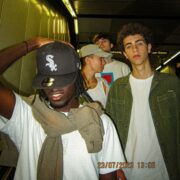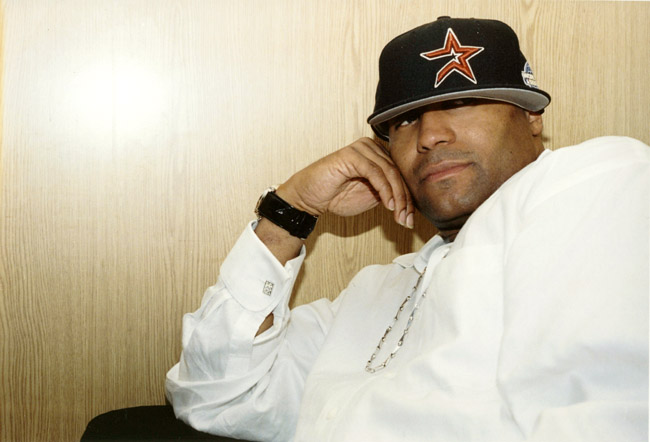Butterflies are spreading their wings to fly, little birds and plants, everybody is mellow….Your Album cover! Very lovely. I guess Alice Russel grew up behind the legendary strawberry-fields.
A.R.: That’s a very nice idea, actually. I like that.
TM: Do you come from the country side?
A.R.: Yes, I’m from the coastline of Suffolk. It’s pretty mellow there.
TM: Because looking at the sleeve, we get the idea that you are living in an old farm-house in a hippie community or something like that.
(laughs) I wish… no we are like in the town there. I can live in my head quite all, that’s quite good.
TM: But the True-thoughts label is a bit comparable to those folks from the 70ies, like everybody is guest singing on the others album, helping the other one. A friendly brotherly vibe…
Yeah. It’s a big family. Definitely we all help each other out, like different producers and different singers. Everybody knows each other on the label. It’s a pretty friendly little place.
TM: Could you read that to me, because it is the nicest thing I ever read in liner notes?
You want me to read this? (laughs) Here we go: Owwww if only I had arms big enough id I’ll pick you all up squash squeeze you and maybe try and run down the road a wee way with y’all (if I could!)
TM: That’s so nice!
That’s one of my little friends.
TM: I noticed on some songs you sing a little harder than on the first ones, the first is like softer and then there is like more rock stuff on it…
We were just thinking: lets do a real shouter and I came up with “A fly in the hand” ‘cause I’ve done the ”Seven nation army” and I think that’s where it came from. After doing that one pretty hard it was like: allright lets get one of those belters in the album, have a good shout, get angry.
TM: Is it becoming a part of the live-show, will you have a more tense and tough part on it?
Towards the end we do a couple of shouters, yes. It starts pretty mellow and it gets quite mishmash like the album and breaks quite hard at the end – there’s a shouting.
TM: Can you tell me a bit of your musical background?
Well my mom and dad were classical, so I got brought up with the classical background, with dad being a pianist and organist, so a lot of that sort of stuff. And I went to listen to him practice and my sisters are both like instrumentalists. And I liked the cello a bit and then I got in to the blues stuff, gospel and Prince. And all the boys around me used to party with all the Hip Hop stuff. And for the Hip Hop people sampled lots of funk stuff, I like searched out things, and so got into that style of music. Like Donnie Hathaway and Chaka Khan and all that. So it grew from there, teenages.
TM: How far did you get on with the cello? Could you be a professional cellist?
A.R.: Oh no! My sister’s a violinist and she did a six hour a day practicing and I was like one hour. I loved it but I was just not….
TM: So basically you went to soul music because you were to lazy to practice?
A.R.: (laughs) To lazy to play the cello, yea…. No I love it and I’m terribly slow at reading? I rather do stuff by ear. So if I did a quartet, I’d have to know it in and out, otherwise I wouldn’t come in at the right place, because I’m not regularly reading music. But hey, that’s ok.
TM: When you’re like 15-16 its always a challenge to pick up music that’s not just “in your face”. So how did that come about, because at the time Donnie Hathaway was pretty unfashionable, and Prince wasn’t in his prime anymore, so how did that come about?
It was just this motion listening from the beginning, playing with my lego, when I was really young, listening to radio. And there was a few artists like Aretha Franklin and James Brown still in the charts on the radio. And it was from them finding different people and also from all the boys playing Hip Hop stuff. Listening to one Prince track and then you’d find more and that would lead you to other people searching all that stuff out. And loving all that gospel stuff, going that route with all that Aretha Franklins and people like that.
TM: Did you already have some experience with being in front of a band on stage? Is it something that comes easily? And how did you get your confidence because specially singing gospel and soul is not very easy if you are not….
A.R.: (interrupting) definitely! To be honest it took a while. I used to get out with local blues bands and get really drunk in my teenages and stumble up and do one song and the people where like: oh that’s good…. And I did more and more, I think it just grew and grew gradually. It’s taken me a long time, I think until I was doing something with an orchestra. We did about three years of proper hard work and did a lot of touring. So you just have to get up and do it and stop worrying about anything else and just sing your songs.
TM: So there seems to be a structure in England like the blues-club. It’s the same story like one could say about the Rolling Stones, so there seem to be possibilities to start your live thing, to build up your confidence, like working with the audience on a very small local basis. I guess that’s a very good opportunity to try out your stuff
A.R.: Oh yea, I was just getting right out there, was quite scary. And a lot of drinking! There were days I would drink a lot more and that would give me the confidence.
TM: And you knew people from the True Thoughts label from back in the days?
A.R.: Well basically I knew Paul Jonas. He runs the label. And then I met Rob Levi and they were managing a group I was with at the time. And they put me in touch with Will and he wanted to do some work with vocalists. That’s how I met William, that was like 4 or 5 years ago. It all just grew from then. It all just grew naturally meeting, people and working with them. Steps at the time
TM: But the music also has an illusive kind of content. Because when I first saw you live you had a really mean fiddler in your band which adds, what I think, a really British folk music touch to the whole thing
AR: I never thought of that like that and he’s quite a freaky fiddler. I like that other twist to it having the violin and he’s a great singer as well. Got a lovely voice. So we’ve got two for the price of one with him!
TM: We met six months ago. How many months have you spent on the road?
We did the rest of October and then we went to Japan for 2 weeks. And then I left the boys and went off to Australia and New Zealand for another month and then came back and took December off to chill out and see my friends and my boyfriend. You forget who you are a bit sometimes.
TM: Many labels are working with ringtones now and tru thoughts is still putting out 7inch vinyl singles – this is like anti-world.
TM: How do write songs? Or is that coming out of the life routine, or do you sit down specially to do so?
I think we’d like to do something with the boys, actually. Because most of the time its just me and Al. And we do get together and sit aside writing a time. Because often when you are on the road sometimes you do write song, but often you are so exhausted giving your energy to performance. The creative side takes a backseat. You do get ideas for song but you do not bring them out, they just sort of hang around a bit. So most of the time we get together in his bedroom with the computer and just put ideas down. But I think we’d like to do a bit of time with the boys get the band together and have a week where you just rehearse and after rehearse we can just jam out and do a bit of stuff together, cause that’d be really nice. That would be a treat to our schedules, to get everyone together.
TM: How can one imagine the production of the album? Everybody was meeting with friends and it was played live. Is it just a romantic illusiuon?
Well I think a lot of it me and Al just did together, but we did get everyone in and out of the studio. So I suppose in that way we always had people getting in and out and putting their little bits on. Some of them in Al’s room, which is quite small it about as big as this little chair right here. So we got a few people in there and a drum kit and a flutist so people coming in and out but not all at the same time, which would be quite nice I think, I would like to live recording of it all at the same time, which we’ve done a little bit. A couple of tracks we do live. We’ve done that for the second album, we’ll see.
So the computer is taking a backseat?
He might be taking a backseat. He’s handy for sketching, though. He’s a good boy.
TM: And do you think there will be a talk about where music’s going. People are afraid that CD won’t be selling anymore and vinyl’s dead for decades.
It is scary actually, going in to the age of that. It’s mostly DVD’s now. Hardly any CDs anymore. It shrunk completely…that was a bit scary the other day
TM: Do you have something like an mp3 player?
No not yet. I’ve really just got a computer.
TM: You told me that your boyfriend is a DJ/Producer himself. So your home’s full of vinyl and CDs?
Oh yes…
TM: Is it a bit difficult to imagine that there will be a change that the artwork, which always has been a strong part of the whole package is going to disappear.
I’m hoping there are always going to be people who want the whole package, cause I think it’s not the same having it all in one little thing. It’s convenient, a lot of things are going that way, to be fast, everything needs to be fast and now. I think human beings will eventually always come back to take a little bit of time – it’s like with food. England is having a rebirth of how enjoyable food is. Take your time, enjoy it. There’s this culture of everything needs to be now and quickly and disposable.
Interview: BTO Spider, Photo: Daniel Shaked
Die vollständige Version des Interviews findest du in THE MESSAGE No.26
Ähnliche Posts
- The Story of a Long Lost Relative // DJ Werd Interview
DJ Werd ist seit Jahren eine Art "graue Eminenz" im deutschen HipHop-Geschehen. Aufgewachsen in San Jose,…
- Interview mit Tokimonsta
Auf Tokimonsta wurde man vor gar nicht langer Zeit nur als wirklich engagierter Hörer aufmerksam.…
- "You have to challenge the society" // Jahson The Scientist Interview
Jahson The Scientist ist ein "Wordsman", der in seinen Ausdrucksformen keine Grenzen kennt. Er ist…



